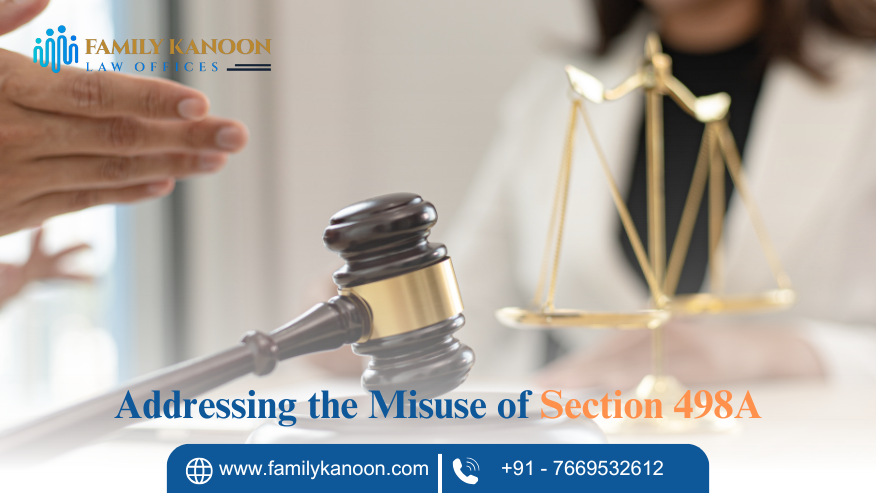Misuse of Section 498A of the Indian Penal Code (IPC) is not a new phenomenon. Personal vendettas, the desire to extort money from the grooms family, and other motivations have often derailed the original intent of this legal provision. While Section 498A was introduced to protect women from cruelty, it is increasingly being used as a tool for harassment, causing emotional and financial distress to innocent men and their families.
Understanding Section 498A
Section 498A, introduced in 1983, was a landmark provision aimed at addressing cruelty against women by their husbands or in-laws, particularly in the context of dowry-related harassment. Key aspects of this law include:
- Broad Definition of Cruelty: It includes both physical and mental harm and harassment for dowry.
- Cognizable, Non-Bailable, and Non-Compoundable: These provisions ensure immediate police action but leave little room for reconciliation or withdrawal of false claims.
- Punishment: Conviction can result in imprisonment for up to three years and a fine.
While the law has provided justice to many genuine victims of domestic abuse, its misuse has led to devastating consequences for innocent men and their families.
Issues Arising from Misuse of Section 498A
Unnecessary Arrests and Harassment
- Innocent men and their families, including elderly parents and distant relatives, are often falsely implicated.
- Immediate arrests without proper investigation create undue stress and social stigma.
Lengthy Legal Processes
- Cases under Section 498A often drag on for years, leaving the accused in a state of limbo.
- Judicial inefficiency compounds the suffering, as accused individuals must endure prolonged legal battles.
Mental Health Impact
- False accusations lead to severe psychological distress, including anxiety, depression, and in extreme cases, suicidal tendencies.
Dilution of Genuine Cases
- False complaints undermine the credibility of the law and divert attention from genuine victims who need protection.
Judicial Responses to Misuse
Recognizing the increasing misuse of Section 498A, the judiciary has taken steps to curb its abuse:
- Arnesh Kumar v. State of Bihar (2014): Guidelines were issued to prevent unnecessary arrests under Section 498A, requiring police to justify arrests based on evidence.
- Rajesh Sharma v. State of U.P. (2017): Recommendations included the creation of Family Welfare Committees to review complaints before any action is taken.
Despite these measures, the misuse of Section 498A continues, highlighting the need for more robust reforms.
A Way Forward
To address the misuse of Section 498A and safeguard the rights of innocent individuals, the following measures are proposed:
Legal Reforms
- Introduce penalties for filing false cases to deter misuse.
- Allow for the compounding of cases under Section 498A to facilitate amicable resolutions.
Faster Judicial Processes
- Streamline court proceedings to ensure timely justice.
- Appoint specialized officers to handle Section 498A cases with sensitivity and efficiency.
Mental Health Support
- Establish mental health resources for individuals facing false accusations.
- Encourage societal acceptance of mens struggles in marital discord.
Awareness Campaigns
- Educate the public about the consequences of false accusations.
- Promote balanced views on marital disputes, focusing on reconciliation and fairness.
Seeking Legal Representation
If you or someone you know is facing cruelty or false allegations under Section 498A, it is crucial to seek legal help promptly. An experienced lawyer can make a significant difference in navigating these challenging times. For expert legal assistance and guidance, especially in cases involving misuse of Section 498A, reach out to Family Kanoon. We have a team of expert mutual consent divorce lawyers in Gurgaon. Our team is committed to ensuring justice and fairness for all.






Comments